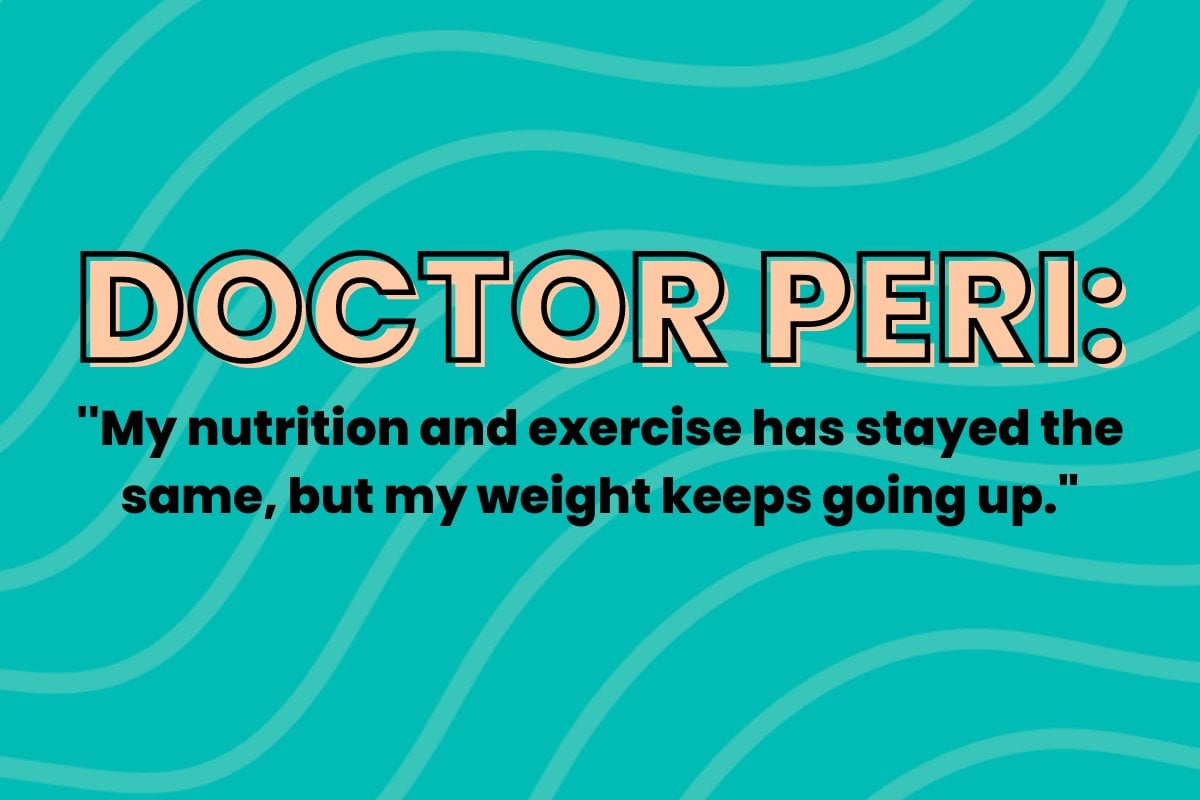
Should nutritional needs change as you work your way towards the big M? I've noticed that my body weight and composition has changed so much since going into perimenopause, despite my nutrition and exercise routines remaining the same. Is the 'more exercise and less calories' really the only way to fight peri weight gain? I'm already quite careful, but feel like I'm fighting a losing battle as the scale just keeps going up and up. Help!
Dr Peri says:
One of the greatest challenges for women to understand as they move from peri-menopause (when periods start to become a bit erratic), to menopause (when periods end), is that there is a shift in the characteristics of our fat cells.
For women putting on belly-fat easily, the fat tends to initially accumulate just under the skin (called subcutaneous fat), but over time, researchers have begun to understand that higher levels of subcutaneous fat, may lead to a change in storage of fat deep in the tissues.
This deep-tissue fat is known as visceral fat and is the harmful fat that, over time, may lead to metabolic changes, including heart disease and Type 2 diabetes.
Many of you may have seen your mother’s or grandmother’s experience these changes in body composition and health.
This also differs between body-types – i.e. women with a higher body mass index who are overweight or obese going into peri-menopause and menopause, may have a higher risk of metabolic changes, compared to thinner, leaner women. A distinction I make in my 12 week My Menopause Transformation programmes.
Because menopause is the biological gateway to our ageing, my focus is always on the Mediterranean Dietary approach for nutrition.
This approach has been well-evidenced in women’s healthy ageing studies.
